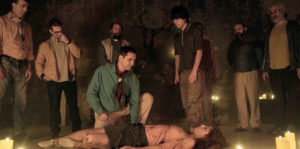
The past can be repressed and conquered. But what happens when the past rears its ugly head again, coming back with more potency than before? From the mind of Argentinian director Alejandro Cohen Arazi, The Unburied is a murky and disquieting folk horror film about the domineering forces of family and tradition.
Maximiliano (Demián Salomon) is a psychiatrist who recently published a book called “Tribal Education,” which focuses on childhood trauma. Maximiliano knows the subject firsthand, as he experienced trauma directly growing up in an abusive foster home in the province of Buenos Aires. Despite publishing a novel, Maxi is in major debt. One day, he receives a phone call from his foster brother, Héctor (Héctor Alba), who informs him that “papa” (Pablo Palacio) has died.
Héctor advises Maxi to return home to pay his respects and sort through the inheritance policies. Desperate for money, Maxi returns home and reunites with his foster brothers. Héctor runs the family slaughterhouse; Juan Manuel (Fernando Miasnik) is the editor-in-chief of a newspaper; Javier (Sebastián Mogordoy) has joined the priesthood, and Oscar (Sergio Dioguardi) is now the town sheriff.
The Unburied functions as a dynastic piece of horror in that everyone except Maxi is dedicated to keeping their father’s legacy alive — a blood-stained legacy wrapped up in timeworn power dynamics and toxic masculinity. Maxi, who originally came for monetary purposes only, slowly reintegrates into the community, or is he playing them and remaining in control?
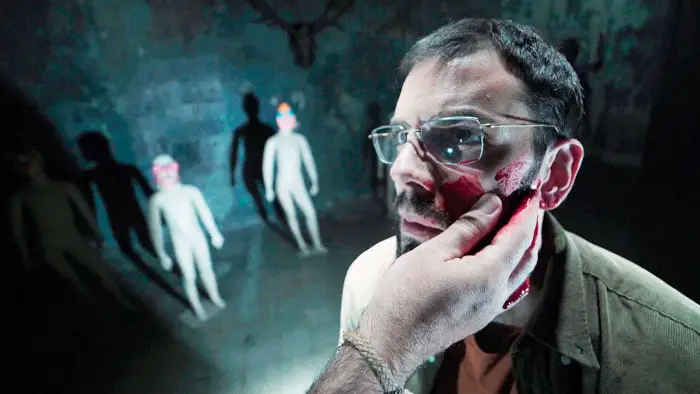
“…everyone except Maxi is dedicated to keeping their father’s legacy alive — a blood-stained legacy…”
Arazi finds a captivating and emotionally nuanced lead in Demián Salomon, whose character fluctuates between expressing subtle layers of pain, trauma, and regression amid confronting his father’s influence. The writer-director allows the tension to expand gradually, lacing every interaction with a faint hint of apprehension and manipulation. There are moments where a sibling guilt-trips Maxi. Moreover, there are repeated close-ups of a nauseating bracelet that every foster sibling wears to show their solidarity. Even before Maxi returns to his hometown, there are apprehensive signs that set the mood for what’s about to transpire: family dysfunction at its cruelest.
After a calm yet brief introduction, Arazi throws you into a world of unease and disgust. Tinkering with untethered familial bonds and strange ritualistic practices, The Unburied feels a bit at odds with itself. The film never truly latches on to full-blown horror or profound family drama (although a scene involving the father’s corpse will stay with me). Notwithstanding, the premise in itself is difficult to shake. The idea that family and tradition can warp the mind is not absurd by any means. Preceding the conclusion, the filmmaker sensibly keeps the violence at bay, staying focused on Maxi’s trauma. The ending does work, however, on account of Salomon’s performance and Arazi’s effectual use of a darkened space with creepy mannequins, rotting walls, and minimal candlelight.
While The Unburied doesn’t deliver on all fronts (the addition of a love interest and a witch are poorly handled), the rivalry between Maxi and his internal self is deeply engrossing. In addition, his relationship with the completely unhinged Héctor and their despotic father provides enough foundation for a truly disturbing tale of familial dysfunction and unwholesome tradition.
For more information about The Unburied, visit the Horror Collective website.
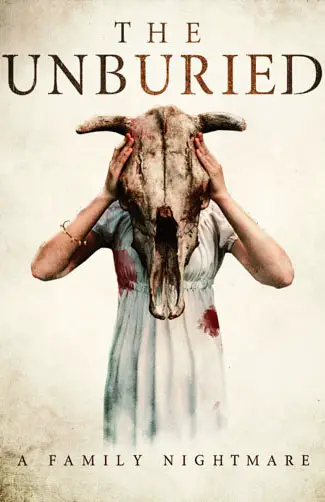
"…truly disturbing..."
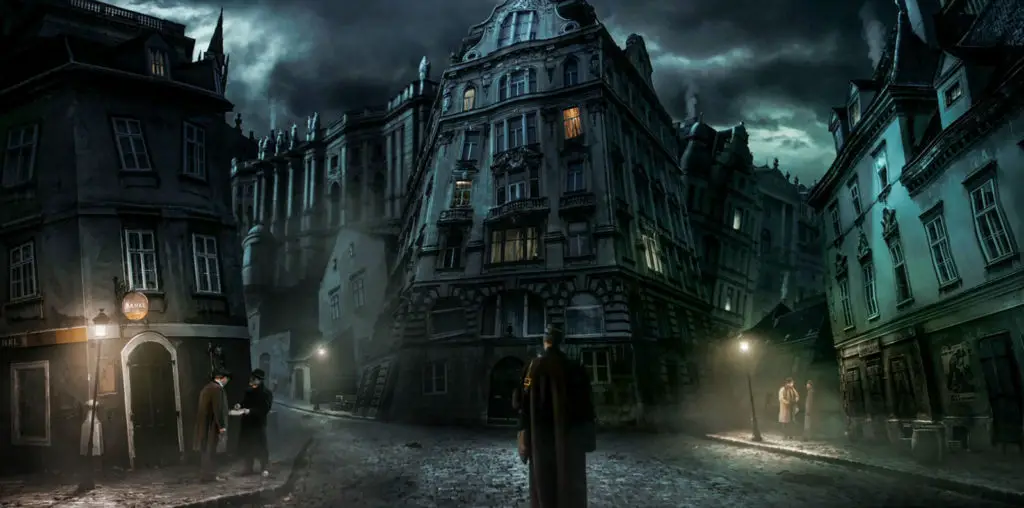
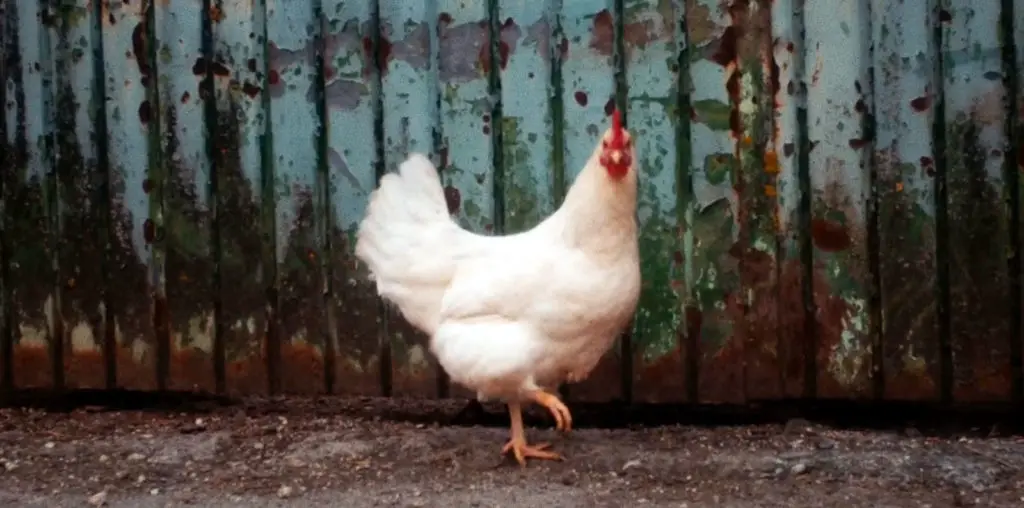
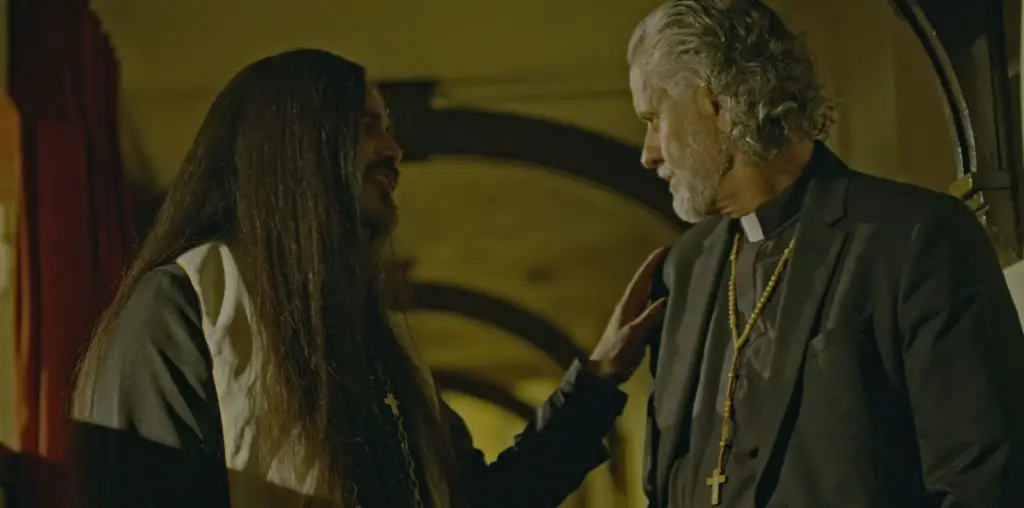
[…] Source link […]
[…] Source link […]
[…] Source link […]